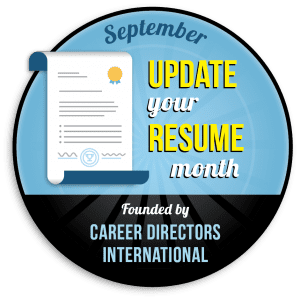Job hiring tends to correlate with business cycles and it’s widely recognised that September and October are great times to job hunt. Companies are focussed on meeting year-end targets and taking advantage of their remaining annual budget. They also want to get new recruits settled in before the holiday mindset takes hold in December.
There’s also evidence that many of us seek a fresh start in September. Even if it’s been many years since you stepped foot inside a classroom, there’s the lingering idea that this marks the beginning of a new year. It’s that feeling of a clean slate and setting fresh goals.
Perhaps we’re even hard-wired to do this in September. According to the Wall St Journal, this is a time when we seek to improve routines and join a gym – as well as consider career moves. We’ve had time to reflect and self evaluate over the holidays and we return with a renewed zeal to do better.
This sense of September being the new January is no doubt why it’s been designated International update your resumé month. If that ‘back to school’ feeling is telling you to go for the promotion you’ve seen advertised, the relocation you’ve dreamed of, or venture into a new role or organisation, then here are my top 10 tips for getting your CV into perfect shape.
1. Research keywords
Gone are the days of recruiters manually sifting through piles of CVs to find the right candidate. Now, the first reader often isn’t human. Instead, recruiters use ATS software to extract relevant information from your CV.
Recruitment databases run algorithms that require candidates to use standard CV templates and titles with good keywords. The software needs to identify and extract your personal details, employers, job titles, dates of employment, qualifications, training, skills and achievements. Primarily it does this through logical layouts and templates that remain within specific industry consensus limits. Most importantly, your CV needs to be full of relevant, perfectly calibrated repetitions of industry keywords and phrases.

2. Follow a plan
Make sure you understand what your strengths are, and how they relate to the roles for which you are applying. Your CV should not simply be your job history with a list of responsibilities. Identify your competencies and achievements, then think of ways you can illustrate them.
3. Show don’t tell
This applies particularly to softer skills such as communication, leadership and work ethic. Stating that you have excellent communication skills or are a good team player sounds empty and boastful. However, if you can demonstrate these attributes through describing your achievements and success stories, then you have a convincing business case.
4. Write a relevant, compelling profile
The summary section at the top of your CV is a ‘make-or-break’ element. Recruiters decide whether to read on, or not, based on this. Take time to figure out answers to key questions such as: What is my Unique Selling Point? What sets me apart from competitors? What am I most proud of in my career?
5. Tell your story
Use strong, active verbs to outline your professional experience in two distinct sections. Include the scope, scale and context of what you were hired to do and your career trajectory. Always think about how you added value and include figures if you can.
6. Keep education succinct
Only mention courses you completed successfully. Make sure professional training and development is relevant and succinct. If something didn’t work out, you dropped or failed a course, don’t include it.
7. Show some personality but keep it relevant
It’s great if you can differentiate your CV with unusual or high achieving activities. For example, voluntary work shows commitment and a well-rounded personality; running a marathon shows stamina and determination. But, it’s best to avoid passive or hard to quantify activities such as socialising or watching films.
8. Adapt your CV to specific roles
Read the job advertisement or specification carefully. Make sure you cover the candidate essentials and desirables criteria in your summary section and throughout your CV. These could be hard skills or industry-specific keywords, as well as softer skills such as teamwork, leadership or communication.
9. Avoid clichés
A compelling CV is a delicate balancing act between professional language and a natural, conversational tone that doesn’t descend into cliché. Phrases that start life as the latest concept can quickly degenerate into toe-curling, industry jargon. Some of the worst offenders, such as ‘results oriented professional’ or ‘solution-focussed’, are still cropping up on too many CVs.
10. Check, check and check again
It’s imperative there are no typos on your CV. Research shows that up to 97% of hiring managers reject on the basis of two typos. They see these types of mistakes as a clear indicator of the quality of work you’d do if you got the job. There is no margin for error.
There’s no such thing as the perfect CV because you’ll always need to adapt it to fit each role. And, it isn’t enough to simply up-date your list of jobs and responsibilities each year. Every CV you send out must be a compelling business case that demonstrates exactly why you deserve to get the interview.
If you have any questions about a particular profession, industry or even company, contact us on +44(0)20 7100 6656 or by email.

